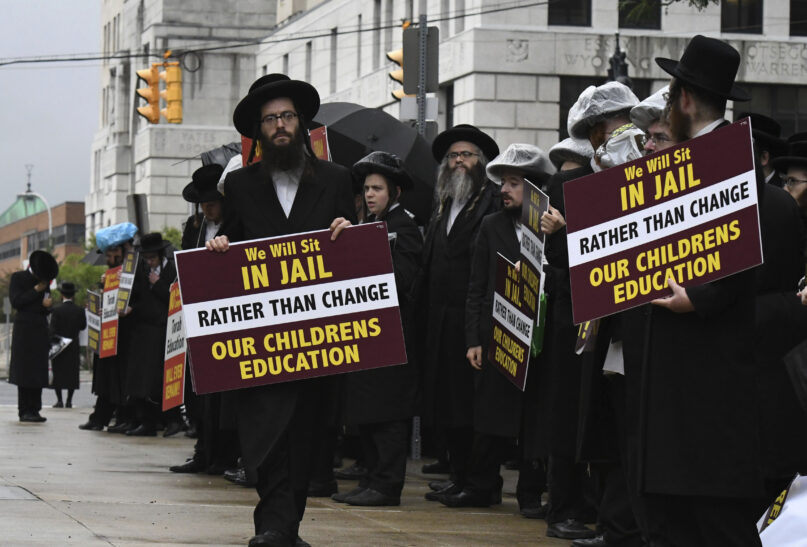(RNS) — Under New York state law, private schools are responsible for providing students with an education that is “substantially equivalent” to what the public schools are expected to provide. In relatively short order, I’m willing to wager, the U.S. Supreme Court will be deciding whether a claim of religious free exercise can entitle a faith community to an exemption from the law.
The community in question is likely to be that of Hasidic Jews. Here’s the setup:
Earlier this month, The New York Times published a major investigation into the yeshivas — religious schools for boys — run by Hasidim in Brooklyn and in various upstate communities. What the Times found was that of the thousands of boys who took state-administered tests in reading and math in the third and eighth grades, 99% failed.
There were other findings as well, including evidence of widespread corporal punishment, and data on the millions of dollars of public funds received by the schools. But the key issue was the utter failure of the schools to provide education in secular subjects. Perhaps most shocking was the ignorance of English endemic in this Yiddish-speaking community. Many of the boys could not even write their names in English.
Let it be noted that English language instruction is central to the state’s educational requirements.
In the wake of the Times story, the New York Board of Regents — after delaying for years — passed a new rule for conducting “substantial equivalency reviews.” In principle, this represents an important step forward. Whether it does so in practice is another question.
Thirty years ago, the Satmar Hasidim living in the upstate New York village of Kiryas Joel created their own school district matching the boundaries of their religious community in order merely to accommodate their community’s children with disabilities. In a 6-3 decision, the Supreme Court found that this violated the constitutional bar on religious establishments.
New York state law establishes that responsibility for enforcing educational standards rests with what are called Local School Authorities (LSAs). In places where Hasidic groups constitute a large share of the population, election of LSAs (i.e. school boards) that look the other way is not unlikely.
But let’s assume that, at least in some parts of the state, the LSA will attempt effective action to enforce state educational standards. Will the yeshivas comply, or will they take the LSAs to court, claiming that as religious institutions they have the right to educate their students the way they choose? I say the latter.
The Hasidic way of boys’ education is to devote long mornings to religious study focused largely on the Talmud, with secular education consigned to the afternoon. While this arrangement is arguably a religious imperative, it need not result in the absence of substantial equivalency that the Times’ story revealed.
A comparable approach to education is offered by non-Hasidic Haredi (ultra-Orthodox) schools such as Zichron Moshe, which has been educating boys in Sullivan County, New York, since the 1940s. For more than two decades my cousin Ira Simon taught English in the school, ultimately serving as principal of the secular side.
There, secular subjects are taught by competent instructors, often former and current public school teachers. On the state exams they perform comparably to public school students in the area and end up, Ira says, “able to function in the wider society,” albeit the vast majority go on to a life in the rabbinate or teaching religion within their religious communities.
In Ira’s view, yeshivas are reflections of their founders’ vision. In the case of Zichron Moshe, “the Rosh (head of the) Yeshiva always thought it wasn’t true Judaism if you allowed the students to mock or belittle or denigrate some form of the learning activities that were going on at the yeshiva,” he told me. “You could make a distinction where the morning was imbued with holiness, but it didn’t mean that what you’re going to learn in the afternoon is shit. That was their philosophy. I don’t believe that was the philosophy of the yeshivas reported in the Times.”
Should a case involving the Hasidic yeshivas reach the Supreme Court, I don’t think a current majority of the justices will rule against the Hasidim, as the Kiryas Joel court did three decades ago. Rather, they will decide that New York’s mandate of substantial educational equivalency is outweighed by the philosophy of the yeshivas reported in the Times.






